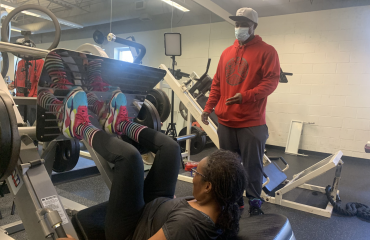Insurers test the waters with 'telebehavioral' health platforms – Modern Healthcare
Supporting telehealth companies is nothing new for insurers, but a COVID-19 windfall and an explosion in demand for mental healthcare during the pandemic have led payers toward virtual therapy platforms as a way to reduce costs and provide better benefits.
Digital tools have improved access to care and alleviated the stigma surrounding behavioral health, which is one of the most prevalent chronic conditions in healthcare.
Health insurance companies see adding a remote mental health component to their benefits as a way to improve members’ consumer experience, said Robert Garber, a partner at 7wire Ventures.
In 2021, large insurers’ investing arms contributed to significantly more funding rounds for ‘telebehavioral’ health companies than during previous years. Cigna Ventures put money toward the virtual platforms Octave and Ginger, UnitedHealth Group’s Optum Ventures invested in Alma, Brightline and Rey, and Centene provided funding to Vida Health.
“There’s been a tremendous amount of new funding and activity in the startup space,” said Stoddard Davenport, a healthcare management consultant at Milliman. “2021 is lining up to be a banner year for investment funding into these kinds of endeavors.”
Because the behavioral health space has suffered from longstanding challenges such as provider shortages, access issues and payment disparities, it’s ripe for experimental digital solutions, Davenport said.
Most large payers have contractual relationships with or investments in telehealth companies that offer behavioral health services. That leaves many smaller virtual platforms clamoring to make their services available under insurance coverage, either by joining networks or becoming care management vendors.
“Virtual behavioral health companies have a little bit of an uphill battle to demonstrate to payers the value that they bring, the impact that they have,” Davenport said.
Health plans are looking to improve in-network access to behavioral health services and encourage more care coordination with structures that limit fragmentation, said Jared Augenstein, director at Manatt Health.
An existing reimbursement model means patients don’t have to pay out of pocket for mental healthcare, which insurers hope will lead to improved member satisfaction and retention, reduced costs, and improved outcomes, Garber said.
“They would like to make money as well, but they’re clearly looking at this in the vein of: ‘How do we improve whole patient care?'” Garber said. “This needs to be incorporated in that integrated care model. It can’t just be about physical health; it has to be about emotional health, as well.”
Insurers are hoping that reducing anxiety and depression and managing policyholders’ costs over the long term—especially among Medicaid enrollees and other populations with considerable mental health burdens—will lead to a high return on investment, said Oleg Bestsennyy, a healthcare practice partner at McKinsey & Co.
In most cases, health insurance carriers tend to roll out virtual behavioral health solutions on a small-scale pilot basis to mitigate risk before figuring out how to distribute the resources more widely, Bestsennyy said.
Before jumping straight to the investment phase or adding platforms to their networks, health plans are typically looking for clinical data to support their decisions, Garber said. The lowest-risk option is partnerships with behavioral health companies to serve large, self-funded employers that take on the risk for care costs, he said.
Although it is still relatively early in the telebehavioral health sector’s growth phase, their uptake has been significant, largely due to insurers having money to spend because healthcare utilization is down during the pandemic, outside of COVID-19 care. Companies are directing those funds toward strategic investments, Garber said.
Successful virtual therapy ventures should promote affordability and limit cost-sharing and offer coordination with primary care and other providers, said JoAnn Volk, a research professor at Georgetown University’s Center on Health Insurance Reforms.
Health plans’ support for virtual therapy platforms mirrors the investments they are making in their own provider operations and telebehavioral health capabilities, Augenstein said.
“Payers could be on the leading edge to really start introducing these digital therapists at scale, to help not only create better access for members to address mental health, but to potentially reduce avoidable medical exacerbations,” Bestsennyy said.
Send us a letter
Have an opinion about this story? Click here to submit a Letter to the Editor, and we may publish it in print.
View the discussion thread.
Sign up for enewsletters and alerts to receive breaking news and in-depth coverage of healthcare events and trends, as they happen, right to your inbox.
MH magazine offers content that sheds light on healthcare leaders’ complex choices and touch points—from strategy, governance, leadership development and finance to operations, clinical care, and marketing.
Our Mission
Modern Healthcare empowers industry leaders to succeed by providing unbiased reporting of the news, insights, analysis and data.
(877) 812-1581
Email us




